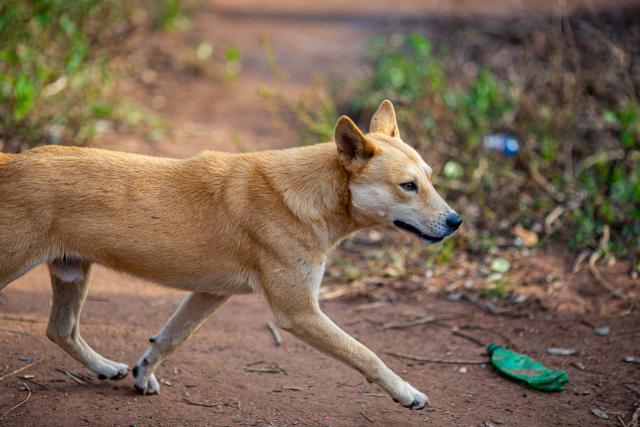Rangers have fitted a GPS tracking collar to a dingo (wongari) displaying heightened risk activity and entering a fenced area on K’gari (formerly known as Fraser Island).
The dingo was fitted with the collar last week and will wear it for the next two months so rangers can track her movements and identify where the animal breaching fence lines.
“The collar will provide regular updates that will help rangers with risk mitigation activities such as increased patrolling and education of people around her,” said Dr Linda Behrendorff from the Department of Environment, Science and Innovation.
“It will also hopefully help pinpoint the specific location where the dingo is entering the fenced area, so rangers can then prevent that access.
“We have received regular reports about the dingo’s high-risk behaviour, which includes stalking and dominance testing.
“Previous research has shown that people tend to keep their distance from collared dingoes, and visitors to the Eurong area are reminded to Be dingo-safe at all times.
“Collars have been used on K’gari since 2011 for various reasons including research and to track high risk dingoes, and camera collars were used to provide unique insight to their actions and their movements.
“Tracking collars are used in other countries to assist in managing animal/human interactions, and this one will automatically drop off after two months.
Visitors and residents on K’gari (Fraser Island) are encouraged to report any negative dingo encounters to a QPWS ranger, or phone 07 4127 9150 or email dingo.ranger@des.qld.gov.au as soon as possible.







